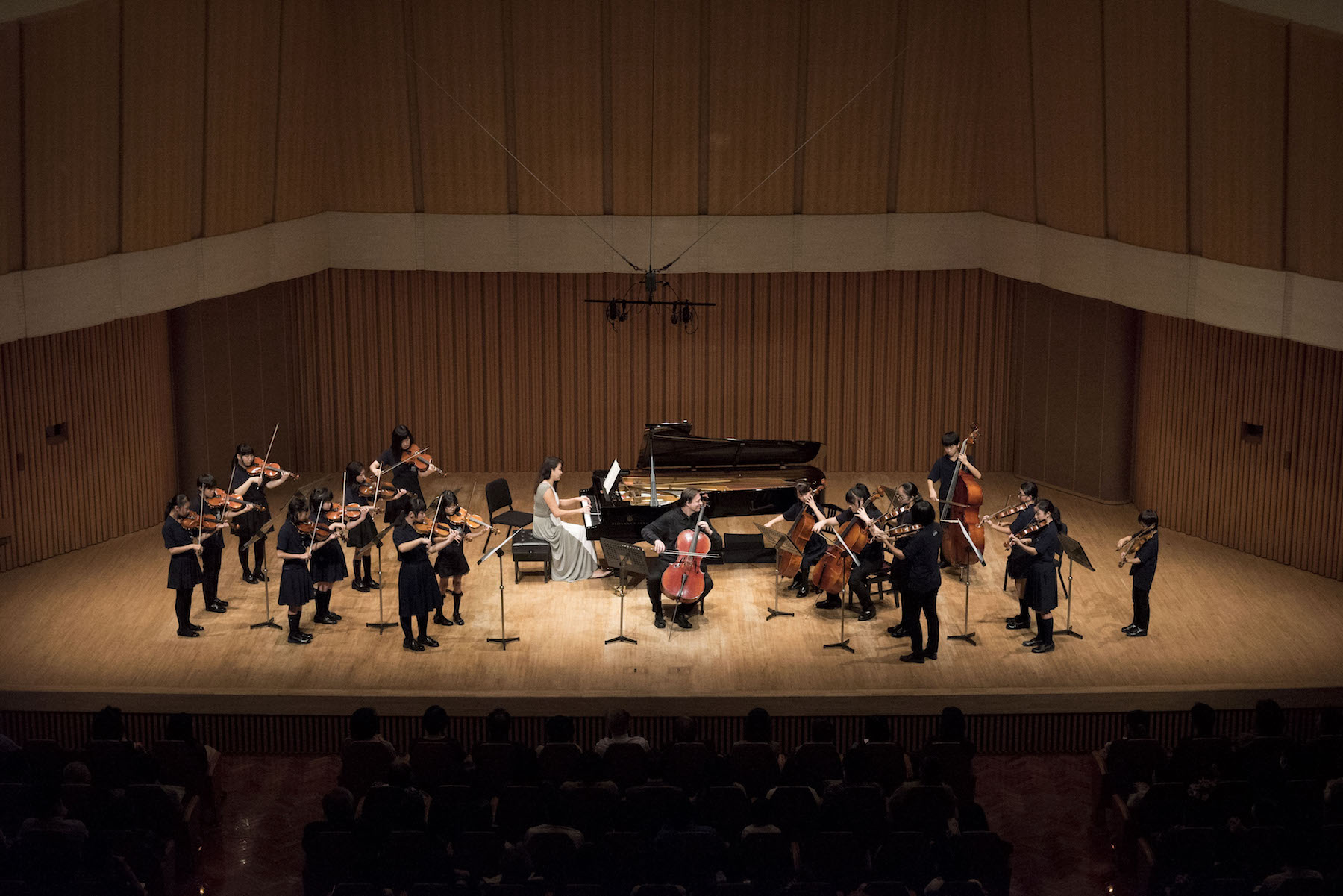A special recital will be held in Ginza, Tokyo, featuring award-winning Polish cellist Marek Szpakiewicz, who resides in Los Angeles, to raise awareness about the situation in Fukushima after the 2011 earthquake, tsunami and nuclear fallout. In particular, the recital will support the work of the Soma Children’s Orchestra members who are rebuilding their community in Fukushima.
This will be Szpakiewicz’s third appearance in Japan. The recital will be held at 7 p.m. on Thursday, Oct 25, at Yamaha Hall in Ginza. Admission is 4,500 yen. A portion of the proceeds from the recital will be used to purchase a half-sized cello for the Soma Children’s Orchestra.
World-renowned cellist Yo-Yo Ma described Szpakiewicz as an artist “whose energy, motivation, earnestness and generosity of spirit are evident through his work.” Szpakiewicz also contributed his talent to film orchestration as a collaborator with Polish composer Jan A.P. Kaczmarek. He worked on numerous scores with Kaczmarek, including the music to “Finding Neverland,” which received the 77th Academy Award in 2005 for Best Original Score. In 2008, the U.S. government granted Szpakiewicz permanent residency as an “Extraordinary Ability Artist” for his remarkable work as a musician.

Szpakiewicz also received recognition from Los Angeles County Supervisor for organizing a musical event in June 2011 to raise relief funds for the March 11, 2011 victims in Japan. He has been supporting the Soma Children’s Orchestra in Fukushima, organized by El Sistema Japan, since its inception in 2012, through various charity concerts. One of the children in the cello section of the orchestra said it would take at least 30 years to rebuild the city, which basically means that most of his formative years into adulthood will be devoted to that recovery effort. That notion prompted Szpakiewicz to support the orchestra for the long haul. In addition, during his first visit to the orchestra in Fukushima in 2014, Szpakiewicz learned that the scarcity of the smaller cellos had led younger children to start on the violins when they had joined the orchestra, despite of their interest in playing the cello.
Szpakiewicz’s deep interest in helping the children in Fukushima also stems from his childhood experiences in communist-governed Poland. In those years he and his family lived near Ukraine where the Chernobyl disaster occurred. While his family feared the threat of the radiation fallout, they could not relocate themselves. Only the top-level athletes and musicians were allowed to leave the country. Szpakiewicz worked hard during his teenage years to become one of the musicians granted the privilege to leave. He established himself as one of the most talented music students in Poland in his teens, and thus, finally gained an opportunity to study in the U.S. when he was 21.
Music provided him a refuge from the turbulence rocking the country under the Polish Communist regime and its transition to a post-communist system. Playing the cello grounded and inspired him even in difficult conditions. He sees part of himself in the children of Fukushima who are forced to stay within 20 miles of the nuclear plants that experienced the meltdown. He hopes that by practicing and expressing themselves through music, and creating a community through playing and sharing music together, they can navigate and rise above the turbulence they experienced in the massive earthquake and consequent tsunami that devastated the area in 2011.
Seventeen members of the orchestra were invited to appear on the stage with Szpakiewicz as a surprise encore during his recent concert in Tokyo in 2016. Kanon Sato, one of the children playing the J.S. Bach’s “Air on G string” on her violin with Szpakiewicz as a soloist, is now 18 years old. Last April, she started her freshman year in a music school in Miyazaki, north of Fukushima. When Sato joined the Soma Children’s Orchestra, she was an 8th grader, never imagining herself becoming a violinist. Her experiences of playing with world-class musicians who have visited the orchestra, including Szpakiewicz, led her to study the violin professionally. In a recent article published in a Japanese newspaper, she is quoted as saying that she would like to become a music teacher and come back to Fukushima, which lacks a music school, where she could share her life-changing experience of playing music.
Szpakiewicz is scheduled to visit the Soma Children’s Orchestra during his stay in Japan, delivering a half-sized cello to the children. He will also bring a special cello, called “Tsunami Cello,” which was made of debris from the 2011 earthquake and tsunami, premiered by cellist Yo-Yo Ma in Japan, to perform on for the children in Fukushima.
The Oct25 recital will features work by Bach, Schubert, Bernstein, Franck and Chopin. Szpakiewicz made arrangements of some of the featured pieces for the cello. Chinese-born pianist Jiayi Shi will accompany Szpakiewicz for this performance.
- External Link
- http://szpakiewicz.com/schedule/japan-recital-2018/
 Take our user survey and make your voice heard.
Take our user survey and make your voice heard.















1 Comment
Login to comment
Chico3
Great cause. I would look forward to seeing that. I hope someone posts that on YouTube.